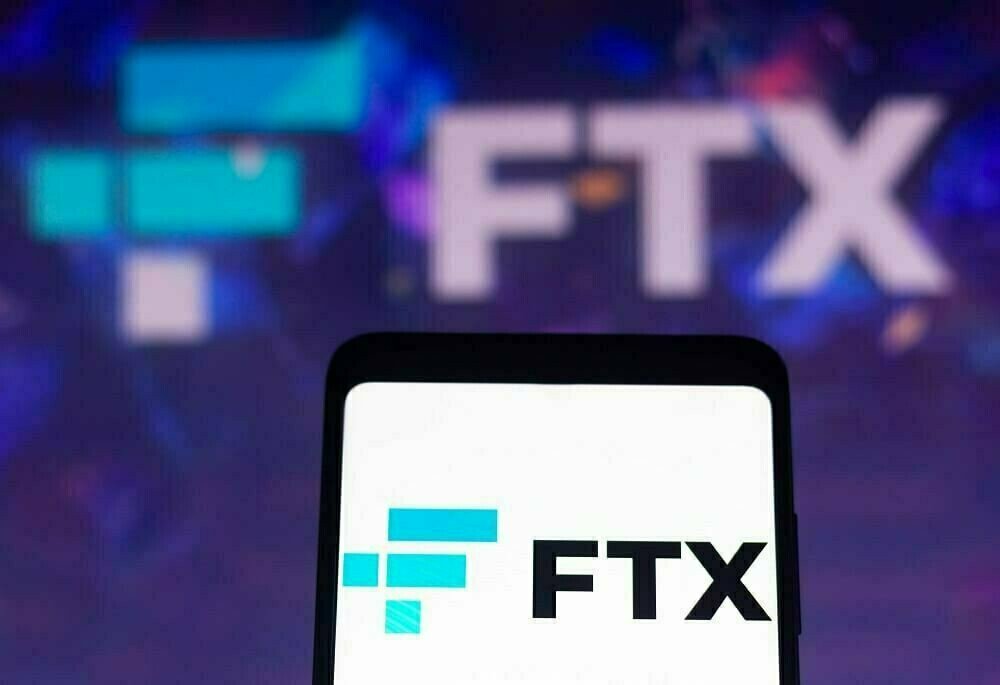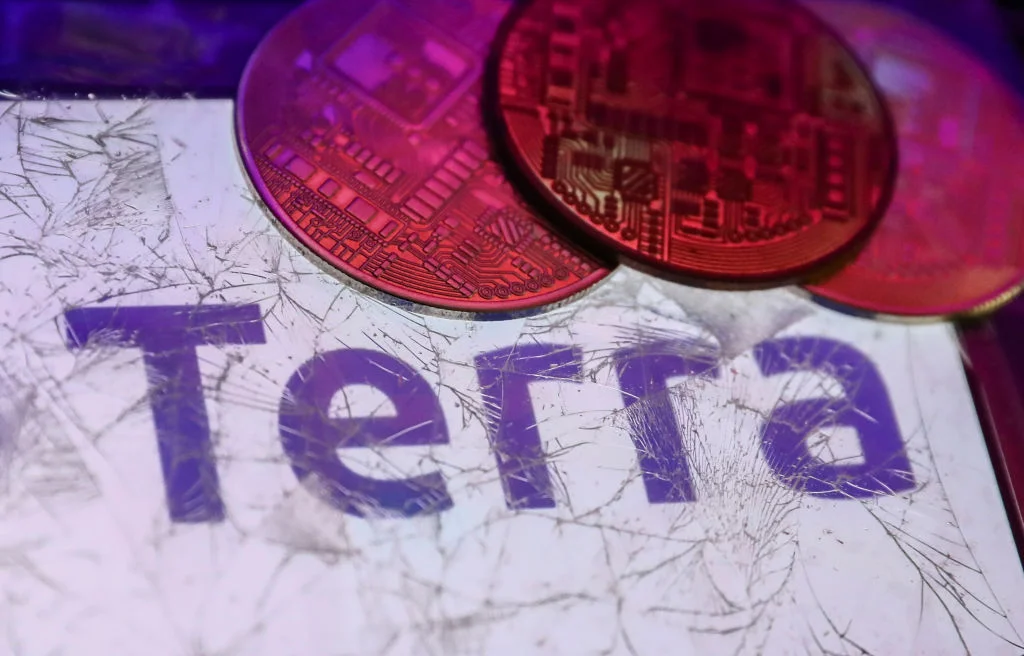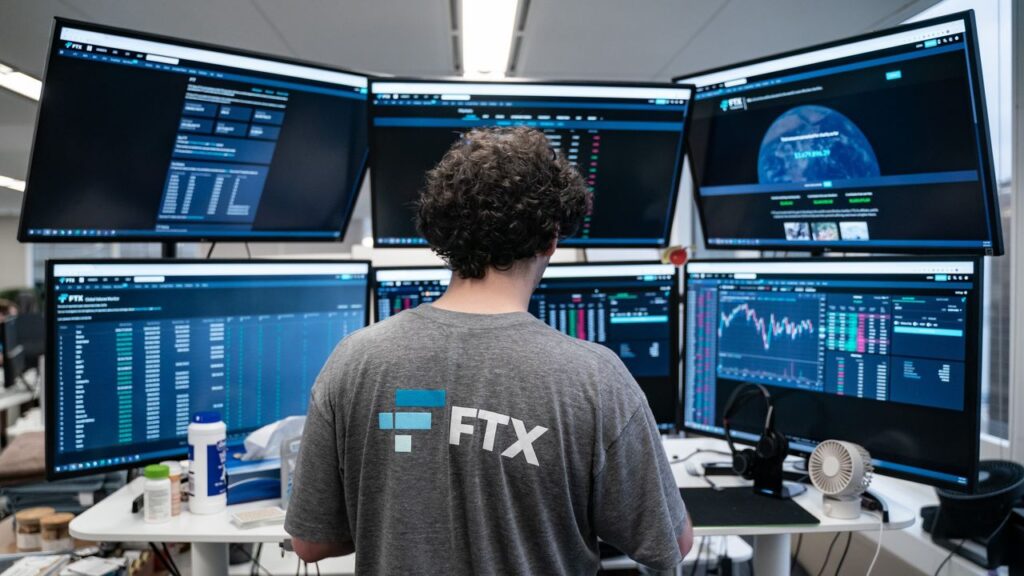Fenwick & West, a United States-based law firm, has vehemently refuted allegations in a recent class-action lawsuit brought against it in connection with its past legal services provided to the now-defunct cryptocurrency exchange, FTX.
The firm stands accused of aiding and abetting FTX’s purported fraudulent activities.
In a court filing dated September 21, Fenwick & West firmly denies any wrongdoing, invoking the legal principle that attorneys cannot be held liable for their clients’ misconduct as long as their actions remain within the scope of the client’s representation.
The plaintiffs allege that while Fenwick rendered standard legal services in compliance with the law, FTX’s founder, Sam Bankman-Fried, allegedly misused this advice to further fraudulent activities.
Furthermore, the plaintiffs contend that Fenwick went beyond the typical scope of services provided to FTX, potentially making them liable.
According to the filing, Fenwick “provided services to the FTX Group entities that went well beyond those a law firm should and usually does provide.”
The filing also claims that some Fenwick employees willingly left the firm to join FTX, suggesting that their actions were not coerced.
READ MORE: IRM Report Highlights Bitcoin’s Potential as a Driver of Global Energy Transition
The lawsuit asserts that Fenwick played a role in establishing corporations that Bankman-Fried allegedly used in his fraudulent activities.
Additionally, it provided advice to FTX regarding regulatory compliance in the evolving cryptocurrency landscape.
Fenwick & West, however, maintains that it should not be held solely responsible for FTX’s actions, asserting that it played a relatively minor role in providing various legal advice components to the exchange.
The firm argues that if the plaintiffs’ allegations were to hold, it would set a dangerous precedent where lawyers could be held accountable for their clients’ misconduct.
This legal dispute follows FTX’s own legal action against former employees of Salameda, a Hong Kong-incorporated company previously affiliated with the FTX group.
FTX seeks to reclaim $157.3 million, alleging that these funds were illicitly withdrawn shortly before the exchange filed for bankruptcy.
In essence, the legal battle between Fenwick & West and the plaintiffs hinges on whether the law firm’s actions can be directly linked to FTX’s alleged fraudulent activities or if they were merely providing standard legal services within the boundaries of their representation.
Other Stories:
Alchemy Pay Secures Key U.S. Money Transmitter License, Expanding Crypto-to-Fiat Services
South Korean City Aims to Become a Leading Blockchain Hub with $75 Million Investment
CBDC Anti-Surveillance State Act Clears Hurdle, Advances to Congressional Vote
Recent data reveals that the notorious North Korean hacking collective, Lazarus Group, possesses a staggering $47 million in various cryptocurrencies, primarily dominated by Bitcoin.
This information, compiled from Dune Analytics through 21.co, the parent company of 21Shares, exposes the group’s holdings.
As of now, Lazarus Group’s wallets comprise $42.5 million in Bitcoin (BTC), $1.9 million in Ether (ETH), $1.1 million in Binance Coin (BNB), and an additional $640,000 in stablecoins, primarily Binance USD.
It is notable that the group’s crypto assets have decreased considerably since September 6, when they held $86 million, just days after their alleged involvement in the Stake.com hack.
The Dune dashboard meticulously monitors 295 wallets linked to the Lazarus Group, as identified by the United States Federal Bureau of Investigation (FBI) and the Office of Foreign Assets Control (OFAC).
What stands out is the absence of privacy coins, such as Monero (XMR), DASH, or Zcash (ZEC), within Lazarus’ portfolio.
These cryptocurrencies are renowned for their enhanced anonymity features, making tracking transactions notably challenging.
In contrast, Lazarus Group’s crypto wallets continue to exhibit high activity, with the most recent transaction recorded on September 20.
READ MORE: Bitmain and Core Scientific Forge Multi-Million Dollar Deal
Additionally, 21.co suggests that the actual holdings of the group might exceed the reported figures, cautioning, “We should note that this is a lower-bound estimation of Lazarus Group’s crypto holdings based on publicly available information.”
Notably, on September 13, Cointelegraph reported that Lazarus Group orchestrated an attack on the crypto exchange CoinEx, resulting in a loss of at least $55 million.
The FBI has also linked Lazarus to hacks on Alphapo, CoinsPaid, and Atomic Wallet, collectively amounting to over $200 million stolen in 2023.
However, a report by Chainalysis indicates an 80% decline in crypto thefts by North Korea-linked hackers from 2022.
As of mid-September, these groups had pilfered $340.4 million in crypto, a significant drop from the record $1.65 billion stolen digital assets in 2022.
In a recent development, U.S. federal authorities issued a warning of a “significant risk” of potential attacks on U.S. healthcare and public health sector entities by the Lazarus Group, emphasizing the group’s persistent threat to various sectors.
Other Stories:
Binance and CEO CZ Zhao Seek Dismissal of SEC Lawsuit Overreach
IRM Report Highlights Bitcoin’s Potential as a Driver of Global Energy Transition
FTX Files $157.3 Million Lawsuit Against Former Employees Over Alleged Fraudulent Withdrawals
The Securities and Exchange Commission’s (SEC) reluctance to approve the first Bitcoin Exchange-Traded Fund (ETF) has put immense pressure on Bitcoin’s price, causing distress among crypto investors.
Fortunately, TradeSanta offers automated trading tools connected to both spot and futures trading platforms, enabling traders to mitigate risks and capitalize on market downturns.
Throughout the year, Bitcoin made several attempts to establish a firm foothold above the $30,000 mark, all of which ended in failure.
As the year draws to a close, there is a growing concern that the cryptocurrency may continue trading below this critical psychological level.
One significant contributing factor to this sustained bearish pressure is the SEC’s ongoing delay in approving a spot Bitcoin ETF.
The SEC’s reluctance to approve Bitcoin ETFs has affected numerous applicants, including industry giants like BlackRock, which had initially encouraged other institutions to submit their applications.
Many asset managers, brokers, index fund providers, and other institutions have sought approval for a Bitcoin ETF to attract more institutional and retail capital to the crypto market.
Notable applicants include:
- BlackRock: The world’s largest asset manager, with $8.6 trillion under management, submitted its application for a spot Bitcoin ETF in mid-June, with Coinbase as its primary data provider and crypto custodian. The SEC accepted BlackRock’s application for review one month later.
- Fidelity: After being rejected in 2021, financial services giant Fidelity reapplied for its Wise Origin Bitcoin Trust to become an ETF in July of the current year.
- VanEck: An early applicant since 2018, VanEck rejoined the race for a Bitcoin ETF in July 2023, after previously withdrawing its application.
- ARK Invest: Investment management firm ARK has been awaiting SEC approval for its ARK 21Shares Bitcoin ETF since June 2021.
- Invesco and Galaxy Digital: These two firms joined forces to seek approval for the Invesco Galaxy Bitcoin ETF, a physically backed Bitcoin ETF with Invesco as the sponsor.
Numerous others, such as WisdomTree, Valkyrie Investments, Bitwise, and GlobalX, are also planning to launch Bitcoin ETFs.
However, at the end of August, the SEC delayed its decision on all these applications.
The SEC’s delay had a noticeable impact on the Bitcoin market.
READ MORE: FTX Files $157.3 Million Lawsuit Against Former Employees Over Alleged Fraudulent Withdrawals
By the end of August, Bitcoin was attempting to retest the $30,000 resistance level but faced a downturn due to the uncertainty surrounding ETF approvals.
This uncertainty pushed the price down to around $25,000, and in mid-September, it even broke below this level, marking the lowest point since mid-June when BlackRock’s filing had triggered a rally.
Despite bearish market conditions, active traders can find opportunities by opening short positions. TradeSanta’s trading bots and automation tools offer a way to do this efficiently and without emotional interference.
The platform provides algorithmic strategies and risk management controls, enabling traders to navigate market downturns effectively.
TradeSanta supports over 100 cryptocurrencies and integrates with major exchanges, simplifying the trading process.
Moreover, it offers technical analysis tools to help traders identify trends and market sentiment. With stop-loss and trailing stop-loss features, traders can minimize losses during bearish trends.
Additionally, TradeSanta allows for copy trading, enabling users to replicate successful strategies for maximum profitability.
Feedback and statistics indicate that TradeSanta’s risk management tools have been effective in helping users minimize losses and navigate volatile market conditions, offering a valuable resource for traders in challenging times.
Other Stories:
IRM Report Highlights Bitcoin’s Potential as a Driver of Global Energy Transition
Binance and CEO CZ Zhao Seek Dismissal of SEC Lawsuit Overreach
In a perplexing turn of events, a Melbourne couple is set to face a plea trial in October 2023 on theft charges after inadvertently receiving a windfall of 10.5 million Australian dollars ($6.7 million) in 2021, subsequently spending the erroneous funds.
The saga began in May 2021 when Thevamanogari Manivel initiated a transfer of funds to her partner, Jatinder Singh’s Crypto.com account.
However, an alarm was raised as the bank account details did not align with the exchange account. Consequently, a refund was initiated.
But instead of returning the modest 100 Australian dollars that the couple had intended to deposit, the exchange inexplicably dispatched a staggering 10.5 million Australian dollars to Manivel’s bank account.
The gravity of the error only came to light in December 2021 when the exchange conducted its routine annual audit.
Subsequently, the exchange took legal action by filing a lawsuit in the Victoria Supreme Court, leading to a judgment that mandated the return of the funds to the crypto trading platform.
However, by that point, the couple had embarked on an extravagant spending spree. They reportedly acquired four properties, several vehicles, and assorted items.
READ MORE: Alchemy Pay Secures Key U.S. Money Transmitter License, Expanding Crypto-to-Fiat Services
Additionally, approximately 4 million Australian dollars had been transferred to a Malaysian bank account.
Among their acquisitions was a lavish five-bedroom property in Craigieburn valued at 1.35 million Australian dollars, which the court ruled must be sold to facilitate the funds’ return.
In a courtroom twist in October 2022, the couple contended that they believed they had won a prize from the crypto exchange.
Singh claimed to have received a prior notification from the company regarding a competition.
However, Crypto.com’s compliance officer, Michi Chan Fores, categorically refuted the existence of any such competition, asserting that the exchange did not disseminate such notifications to its users.
In a recent development, Manivel, who faced charges of theft, pleaded guilty in September 2023 to recklessly dealing with the proceeds of the crime.
She received a sentence comprising an 18-month community corrections order, including six months of rigorous compliance and unpaid community work, after having spent 209 days in custody.
Meanwhile, Singh is slated to undergo a plea trial on October 23, leaving their fate hanging in the balance as they confront the consequences of their unintended windfall and subsequent expenditures.
Other Stories:
South Korean City Aims to Become a Leading Blockchain Hub with $75 Million Investment
CBDC Anti-Surveillance State Act Clears Hurdle, Advances to Congressional Vote
IRM Report Highlights Bitcoin’s Potential as a Driver of Global Energy Transition
The Terra Classic community has taken a significant step towards restoring stability to its ecosystem by voting to halt all minting and reminting activities associated with TerraUSD Classic (USTC).
This strategic move is aimed at reestablishing a solid peg between USTC and the United States dollar, with the community overwhelmingly supporting this decision.
In a recent proposal, the Terra Classic community voted decisively, with 59% in favor of discontinuing the minting of USTC, while approximately 40% opposed the change.
The primary objective behind this decision is to protect the interests of both the community members and external investors.
By reducing the supply of USTC, the community aims to facilitate the process of repegging USTC to the U.S. dollar.
This action follows a tumultuous period in Terra’s history when, in May 2022, USTC decoupled from the U.S. dollar.
This decoupling event triggered a catastrophic collapse, with Luna Classic (LUNC), closely intertwined with USTC, witnessing a nearly 100% drop in its value.
READ MORE: South Korean City Aims to Become a Leading Blockchain Hub with $75 Million Investment
This precipitated a broader downturn in the cryptocurrency markets, resulting in a staggering loss of approximately $40 billion in total market capitalization.
The proposal also emphasized that this decision would compel major cryptocurrency exchanges to initiate the burning of USTC.
“Most importantly, this proposal opens the door for institutions like Binance to start burning USTC knowing that the minting and reminting is over,” the statement noted.
These developments occur against the backdrop of concerns within the Terra Classic community regarding an increase in spam activities following the decline in LUNC prices.
On September 10, Cointelegraph reported that the community was actively voting on multiple proposals, one of which aimed to raise the minimum deposit requirement from 1 million LUNC to 5 million LUNC.
The proposal regarding the minimum deposit requirement concluded on September 16, with an overwhelming 93.22% of the community members in favor of the proposed increase.
This decision reflects the community’s determination to implement measures that will strengthen the Terra Classic ecosystem and restore confidence in its stability.
Other Stories:
CBDC Anti-Surveillance State Act Clears Hurdle, Advances to Congressional Vote
IRM Report Highlights Bitcoin’s Potential as a Driver of Global Energy Transition
Alchemy Pay Secures Key U.S. Money Transmitter License, Expanding Crypto-to-Fiat Services
Coinbase’s layer-2 network Base has witnessed a remarkable surge in its Total Value Locked (TVL), soaring to $397.32 million since its launch in August.
This accomplishment now places Base ahead of the Solana network, which has a TVL of $358.96 million as of the current date.
The past month has proven to be a game-changer for Base, as data from DefiLlama indicates a staggering 97.21% increase in the network’s TVL over this period.
In stark contrast, Solana has experienced a decline of 9.64% in its TVL during the same timeframe.
Within the Base ecosystem, two native projects stand out as the dominant contributors to its TVL.
The decentralized exchange Aerodrome Finance leads the pack with an impressive TVL of $97.83 million. Following closely behind is the decentralized social media app Friend.tech, boasting a TVL of $36.53 million.
Aerodrome Finance was launched on August 28, allowing users to deposit liquidity and earn its native AERO tokens, among other features.
While it initially struggled to attract significant deposits, Aerodrome’s TVL skyrocketed on August 31, with a staggering $150 million pouring in on that day alone.
However, it has since experienced a cooling-off period, with the TVL decreasing by approximately 51% from its peak.
Friend.tech made its debut on August 11, offering a platform for users to tokenize their social networks through the buying and selling of “Keys.”
Despite facing challenges and being declared “dead” in late August due to declining user activity and fees, the platform saw a remarkable resurgence in September.
READ MORE: Creators Embrace Decentralized Platforms as Web3 Reshapes Adult Content Industry
DefiLlama reported a 540% increase in Friend.tech’s TVL over the past month, primarily driven by a pump that began on September 9, coinciding with a resurgence in daily trading volume.
Further down the list, Base’s TVL is mainly attributed to multi-network decentralized finance platforms such as Compound, Curve, and Uniswap.
Additionally, Base achieved a new peak in daily transactions, reaching 1.88 million on September 14, according to data from BaseScan.
This accomplishment positioned it well ahead of competing chains like Optimism and Arbitrum, which collectively recorded nearly 880,000 transactions on the same day.
While daily transactions have dipped to approximately 908,000 as of September 22, Base’s all-time high remains unscathed.
In summary, Coinbase’s Base network has experienced a meteoric rise in TVL, surpassing Solana in a short span.
This growth can be attributed to the success of native projects like Aerodrome Finance and Friend.tech, as well as a surge in daily transactions, solidifying Base’s position in the rapidly evolving world of blockchain and decentralized finance.
Other Stories:
ASIC Launches Legal Action Against Kraken’s Australian Operator Bit Trade
South Korea’s Cryptocurrency Holdings Surpass $98 Million, Dominating Overseas Assets
Bitcoin Holds Steady at $27,000 as Crypto Community Awaits Fed’s Decision
Dubai-based cryptocurrency exchange Bybit has revealed its decision to halt operations in the United Kingdom in response to impending regulations set forth by the country’s Financial Conduct Authority (FCA).
The exchange made this announcement on September 22, outlining a phased approach to suspending services for UK residents, commencing on October 1.
Beginning on October 1, Bybit will cease accepting new account applications from UK residents.
This initial step will be followed by further restrictions on October 8, which include suspending new deposits, prohibiting the creation of new contracts, and preventing changes to existing positions for their current user base.
The company’s decision to suspend services in the UK stems from the FCA’s introduction of new regulations governing marketing and communication practices within the cryptocurrency industry.
Bybit is opting to proactively embrace these regulations and temporarily halt operations in the UK market.
By doing so, Bybit aims to ensure compliance with the FCA’s rules, which are designed to establish clear, fair, and non-misleading marketing standards for crypto businesses.
Bybit’s timeline for winding down its services coincides with the FCA’s deadline for crypto asset firms marketing to UK users to fully comply with the specified rules.
The FCA initially unveiled these regulations in June and, on September 21, issued a reminder of the October 8 deadline while emphasizing the potential legal consequences for non-compliant firms.
READ MORE: Creators Embrace Decentralized Platforms as Web3 Reshapes Adult Content Industry
Bybit has expressed that the suspension of services in the UK will enable the company to direct its efforts and resources toward aligning with future UK regulatory requirements.
Notably, the FCA has suggested that certain firms may have until January 2024 to achieve compliance with the marketing rules, subject to prior approval from the regulator.
Earlier in May, Bybit undertook a similar winding-down process for its services in Canada, citing “recent regulatory developments” as the driving force behind the decision.
However, the company has also embarked on expansion efforts in various other regions.
Notably, it secured in-principle approval to operate as a cryptocurrency custody service provider in Kazakhstan in May, demonstrating its commitment to evolving in compliance with regulatory landscapes worldwide.
Other Stories:
Bitcoin Holds Steady at $27,000 as Crypto Community Awaits Fed’s Decision
South Korea’s Cryptocurrency Holdings Surpass $98 Million, Dominating Overseas AssetsASIC Launches
Architect Financial Technologies, a startup founded by former FTX US president Brett Harrison, is set to revolutionize the world of financial derivatives.
The National Futures Association (NFA) has granted approval to Architect Financial Derivatives, a subsidiary of Architect Financial Technologies, to operate as an independent introducing broker.
This milestone paves the way for Architect to provide derivatives brokerage services, targeting both the cryptocurrency derivatives and traditional markets, as stated by Harrison himself.
An introducing broker, per NFA guidelines, facilitates the solicitation and acceptance of orders for various financial instruments, such as futures contracts, commodity options, retail off-exchange forex contracts, and swaps. However, it does not handle customer funds directly.
Architect, in essence, is a software provider, with its focus firmly set on building regulated businesses within the exchange-traded derivatives landscape, encompassing not only crypto derivatives but derivatives on a broader scale.
The Architect trading platform is poised to offer a diverse range of derivatives trading options on exchanges regulated by the United States Commodity Futures Trading Commission (CFTC). Clearing services will be provided through trusted, regulated partners.
Moreover, qualified customers will gain access to more than 20 internationally recognized and regulated exchanges through the platform.
READ MORE: Bitcoin Holds Steady at $27,000 as Crypto Community Awaits Fed’s Decision
Brett Harrison initiated Architect Financial Technologies in January, securing $5 million in investment from notable backers, including Coinbase Ventures and Circle Ventures.
The company’s primary mission is to provide sophisticated trading software tailored for institutional investors.
Harrison’s track record in the financial industry is notable. As the former president of FTX US from May 2021 to September 2022, he led the company through significant milestones.
During his tenure, FTX US successfully completed a substantial $400-million funding round and unveiled plans to establish a stock trading platform.
His background, shared with former FTX CEO Sam Bankman-Fried, traces back to Jane Street Capital, highlighting a strong foundation in the financial sector.
In summary, Architect Financial Technologies, under the guidance of Brett Harrison, is gearing up to reshape the derivatives trading landscape.
With regulatory approvals in place and a commitment to offering cutting-edge solutions, the company is poised to serve both cryptocurrency and traditional markets, ushering in a new era of financial innovation.
Other Stories:
South Korea’s Cryptocurrency Holdings Surpass $98 Million, Dominating Overseas Assets
Creators Embrace Decentralized Platforms as Web3 Reshapes Adult Content Industry
ASIC Launches Legal Action Against Kraken’s Australian Operator Bit Trade
The forthcoming crypto bull run is poised to diverge significantly from its predecessor, and investors should exercise restraint in their anticipations of an imminent surge in cryptocurrency prices, according to Lars Seier Christensen, the founder of enterprise blockchain company Concordium, in a recent interview with Cointelegraph.
Despite the prevailing optimism in the crypto market surrounding the multitude of proposed spot Bitcoin (BTC) exchange-traded funds (ETFs), Christensen remains skeptical about their immediate impact on crypto markets.
He emphasizes that even if a Bitcoin rally does materialize, it does not guarantee a simultaneous surge in all crypto assets.
Christensen suggests that older altcoins like Ethereum may not experience a similar rally, contrary to expectations.
While digital asset prices have experienced a slump over the past 18 months, there remains an unwavering corporate interest in blockchain technology.
Consequently, Christensen envisions the next phase of industry growth to be marked by gradual, steady progress rather than the explosive price surges seen in 2021.
He notes that corporate entities require cryptocurrencies primarily for executing activities on specific blockchains, rather than solely for speculative gains.
However, not everyone shares Christensen’s perspective.
Ben Simpson, the founder of crypto education platform Collective Shift, argues that various data and indicators suggest the early stages of a Bitcoin bull market.
He points to metrics like the drawdown from the all-time high chart and market-value-to-realized-value ratio, which often precede bull markets.
Simpson identifies Bitcoin, Ether (ETH), and application-specific tokens, particularly those related to gaming, as assets poised for significant growth.
He also mentions DeFi tokens as offering substantial upside potential.
READ MORE: Bybit Unveils Automated Risk Management Tool ‘Perp Protect’
The crypto industry has faced challenges in recent years, including a more hawkish Federal Reserve and the high-profile collapses of platforms like FTX and Celsius Network, resulting in decreased investments and falling crypto asset prices.
However, eToro Markets analyst Josh Gilbert is optimistic, anticipating a resurgence in the crypto market as central banks worldwide consider lowering interest rates.
Looking ahead, 2024 appears promising for Bitcoin and the broader crypto market, driven in part by the Bitcoin halving event.
Still, market analyst Tina Teng from CMC Markets advises caution, emphasizing the need for a conducive macroeconomic environment and central banks’ willingness to provide liquidity to markets for a true bull market to emerge.
Teng points out that the previous crypto market boom coincided with the Fed’s rate cut cycle rather than a rate hike cycle.
She underscores the significance of Bitcoin breaking through the 50-day moving average for a new bull market thesis to gain validation.
Teng concludes by highlighting ongoing concerns related to government bond yields and inverted bond yields, signaling economic uncertainty.
Other Stories:
Binance.US Faces Record-Low Trading Activity Amid Mounting Regulatory and Internal Challenges
US House Financial Services Committee Advances Bills to Regulate Central Bank Digital Currency
SEC Faces Setback as Judge Denies Immediate Access to Binance.US Software
Coinbase, a leading cryptocurrency exchange, has achieved a significant milestone in its European expansion by securing Anti-Money Laundering (AML) compliance registration from the Bank of Spain.
This development, announced on September 22, paves the way for Spanish users to securely manage their crypto assets on the platform while conducting cryptocurrency transactions in euros.
With this registration, Coinbase can now offer its full range of services to both retail and institutional users in Spain while adhering to the country’s legal framework.
The move comes as a response to the growing interest in digital assets among Spanish citizens, with a noteworthy 29% of adults believing that cryptocurrencies represent the future of finance.
In an intriguing revelation, cryptocurrency has emerged as the second-most-preferred payment method in Spain, surpassing traditional bank transfers.
This underscores the increasing adoption and trust in cryptocurrencies as a means of conducting financial transactions.
Nana Murugesan, Coinbase’s Vice President of International and Business Development, emphasized the exchange’s commitment to regulatory compliance worldwide.
Coinbase has been actively pursuing regulatory approvals and compliance measures in various countries, including Italy, Ireland, the Netherlands, Singapore, Brazil, and Canada.
READ MORE: IRM Report Highlights Bitcoin’s Potential as a Driver of Global Energy Transition
Coinbase’s achievement in Spain closely follows Crypto.com’s regulatory approval in the country, highlighting the continued growth of the cryptocurrency industry in the region.
The Bank of Spain had previously issued guidelines in October 2021 outlining the steps that crypto service providers should take to ensure AML compliance, reinforcing its commitment to combating illicit activities within the crypto space.
In line with its European expansion efforts, Coinbase made two attempts to acquire the defunct crypto exchange FTX Europe in November 2022 and September 2023.
This strategic move aligns with the European Parliamentary Research Service’s call for stricter oversight of the global crypto market by non-European regulators.
As the Markets in Crypto-Assets Regulation (MiCA) Act approaches its implementation deadline in December 2024, the EPRS emphasizes the need for a robust regulatory framework in non-EU jurisdictions to safeguard the EU’s financial system and autonomy.
Coinbase’s successful registration with the Bank of Spain marks another significant step in the cryptocurrency exchange’s global journey, solidifying its presence in Europe while complying with evolving regulatory standards in the crypto industry.
Other Stories:
Alchemy Pay Secures Key U.S. Money Transmitter License, Expanding Crypto-to-Fiat Services
South Korean City Aims to Become a Leading Blockchain Hub with $75 Million Investment
CBDC Anti-Surveillance State Act Clears Hurdle, Advances to Congressional Vote












